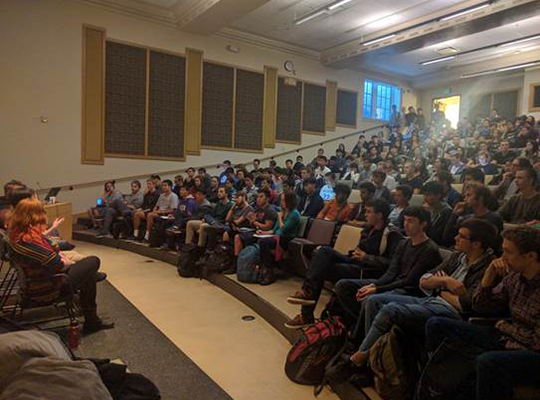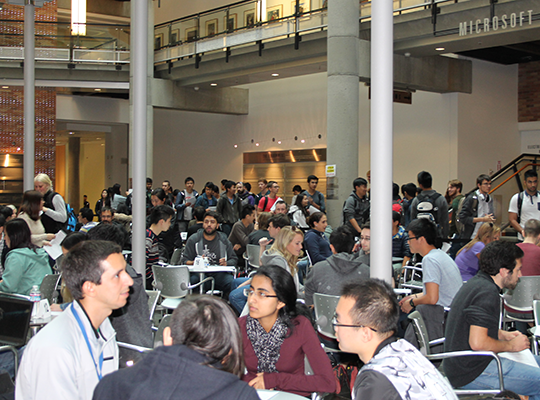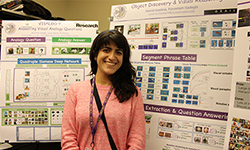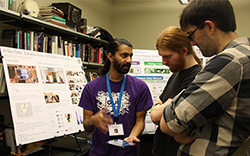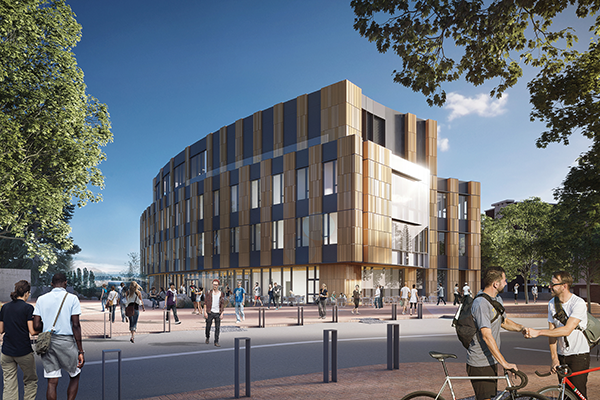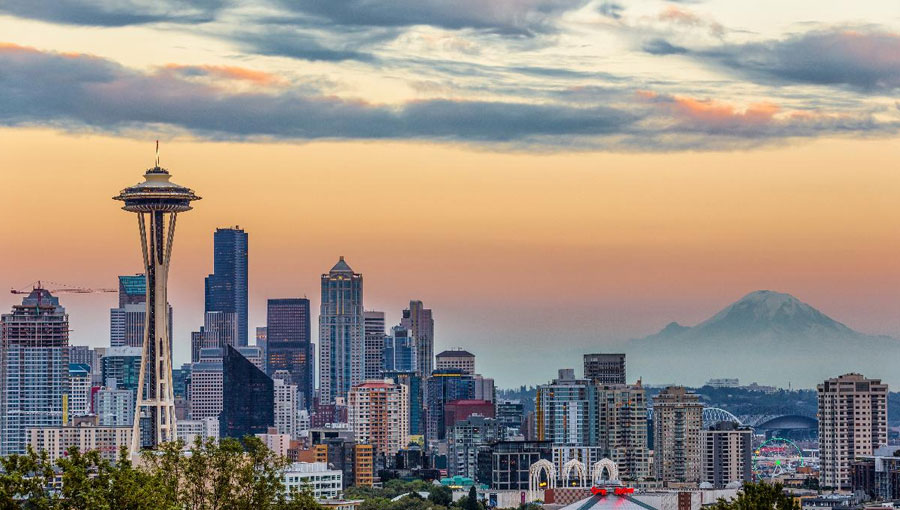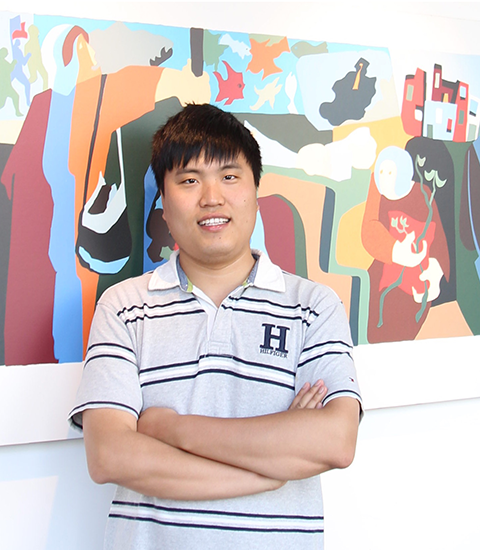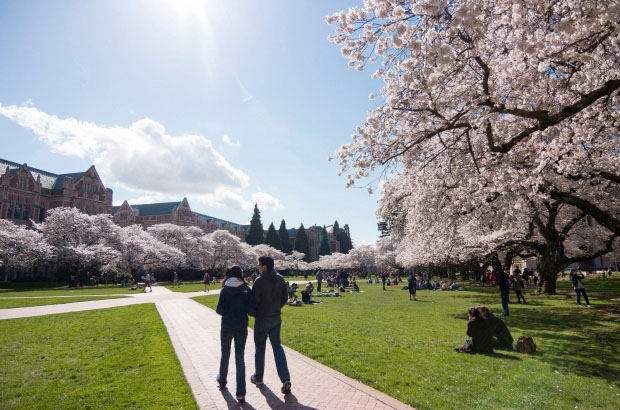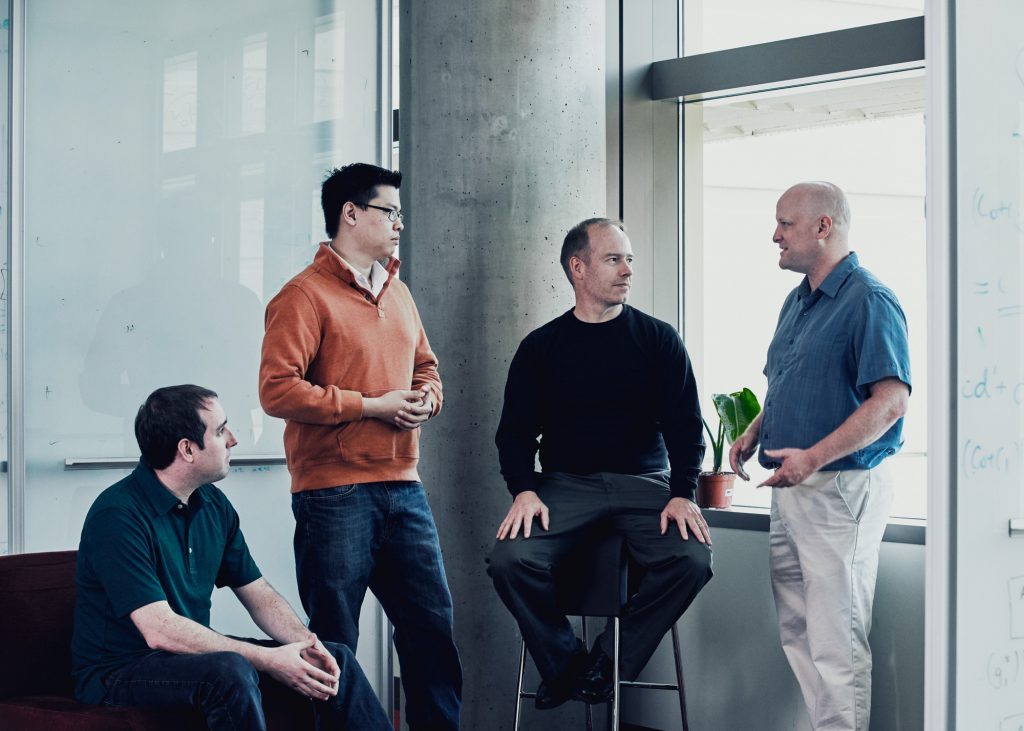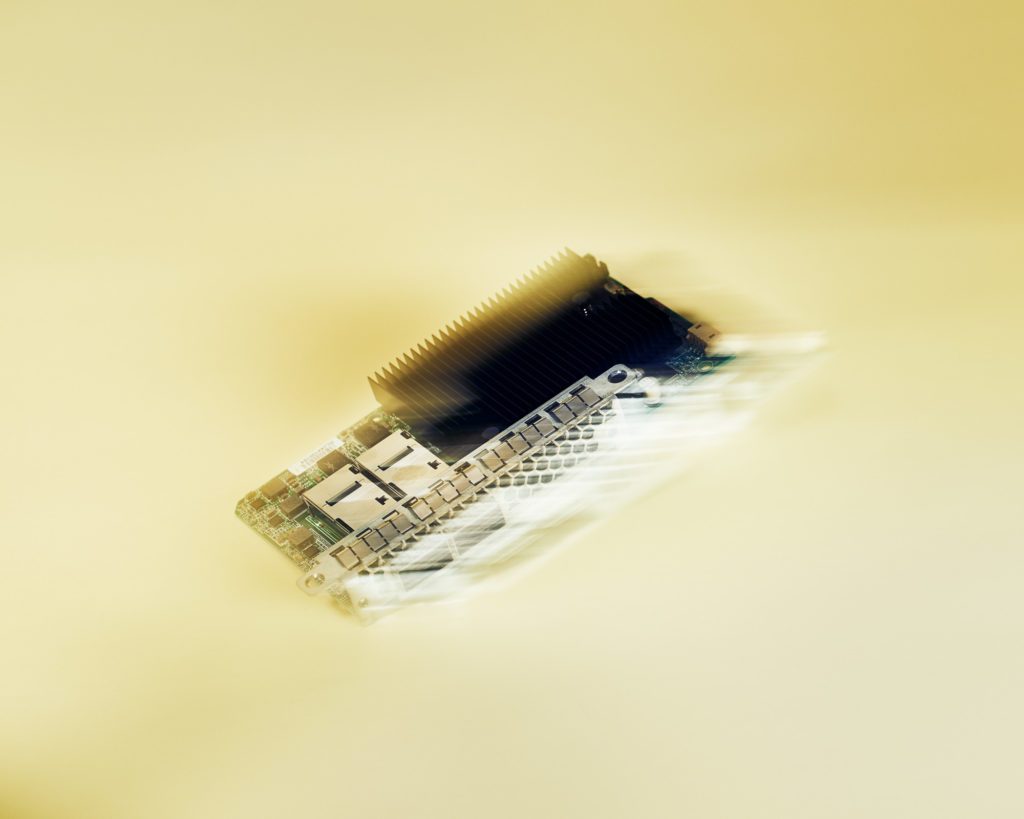Each fall, UW CSE organizes a series of events aimed at current undergraduates hoping to snag an internship to gain practical experience or to line up their first job looking ahead to graduation. To help them put their best foot forward and get the most out of the recruitment process, we ask UW CSE alums to pass on the wisdom they have gained from years in gainful employment, and local recruiters to share their insights and advice for students experiencing the process for the first time.
Last week, three alums – Victoria Wagner (B.S., ’14), Allison Wilbur (B.S., ’12), and Albert Wong (B.S., ’04) – joined Facebook recruiter Vince Sison in front of a packed house of more than 200 students for a panel discussion on how to land the job or internship of their dreams. Wagner completed internships at LinkedIn and Facebook while a student at UW CSE and has spent the past two and half years as a software engineer at Tableau. Wilbur began her career with the Fulfillment by Amazon team before moving on to positions at Zulily and Madrona Venture Labs; this past summer, she joined local startup ReplyYes as a software engineer. Wong began his career as a software developer at Amazon before joining Google. There, he spent 10 years working with various teams in the Kirkland, Beijing and Seattle offices, mentoring several engineers along the way. In 2014, Wong made the move from private to public sector, becoming a consultant for the United States Digital Service. All three offered a wealth of insights to students who are about to embark on their own career paths.
This week, 27 volunteers, including another proud UW CSE alum, Babak Dabagh (B.S., ’14), took over the atrium of the Allen Center for our résumé review workshop. Roughly 200 students went through the process — some of them multiple times! — to obtain feedback from recruiters and tech leaders from more than a dozen local companies, including Amazon, Ericsson, Facebook, Google, Indeed, Marchex, Microsoft, Qualtrics, Qumulo, RealSelf, Redfin, RetailMeNot, Whitepages, and Zillow.
Both events are designed to prepare our students to put their best foot forward at our fall recruiting fairs next week — one for startups and one for established companies — that are among the highlights of our annual Industry Affiliates meeting.
Sandwiched between the two fairs is UW CSE’s annual research day and open house on Wednesday, October 19th. That day, we invite members of the community to learn more about the people and projects that make UW CSE great. If you haven’t marked your calendars to join us next Wednesday, please do! You can RSVP to the open house here.
Thank you to our terrific alumni and volunteers who have spent time with our students the past two weeks! Read more →


